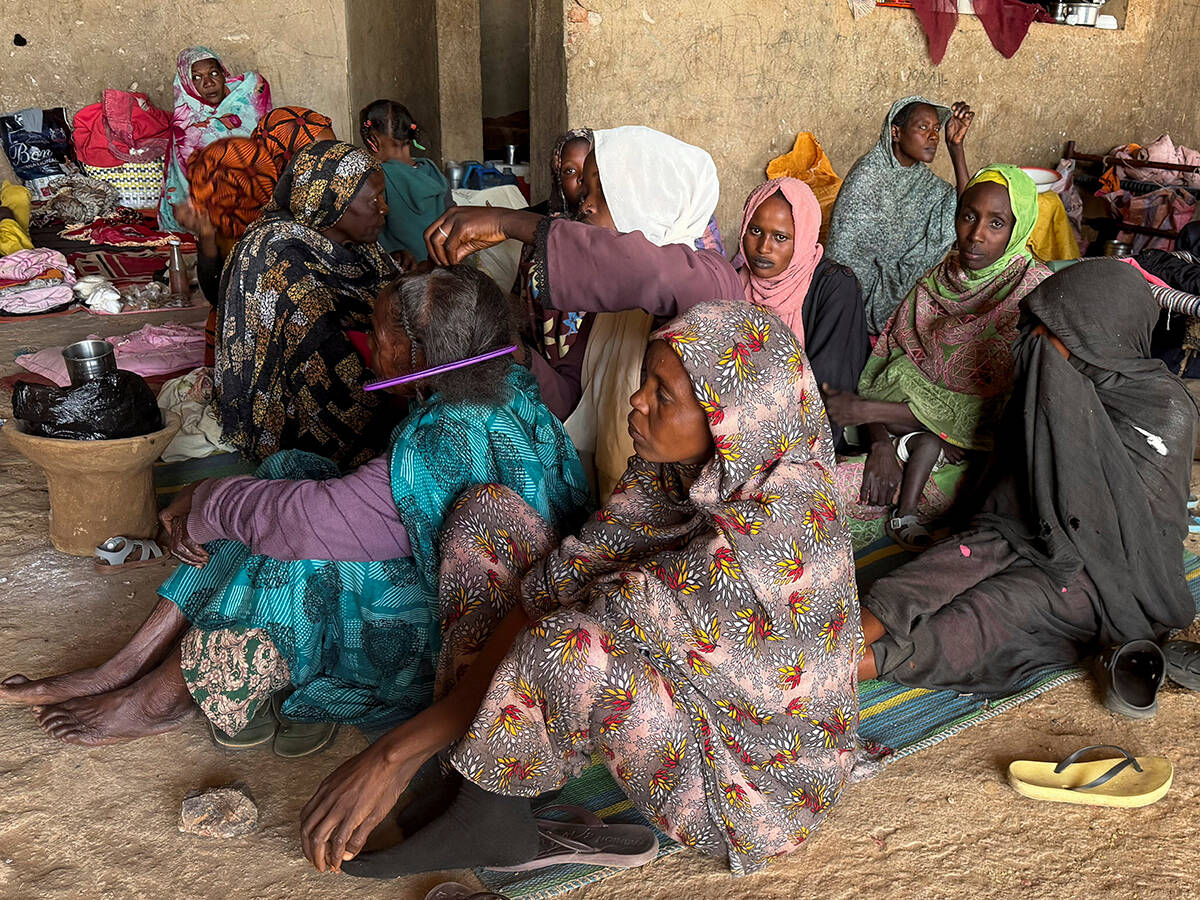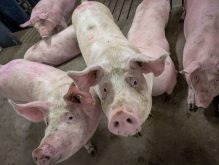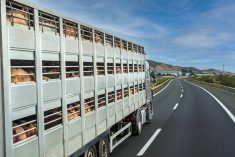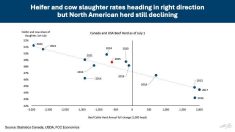Twenty-two thousand, or 55 per cent, of all agriculture and food processing jobs in Manitoba are tied to the hog sector, according to a new study released by the Manitoba Pork Council.
“The contributions of Manitoba’s hog farming and pork processing sector to the provincial economy are substantial and show that our sector is an economic powerhouse for communities both large and small,” chair Rick Préjet said in an Aug. 3 release.
Why it matters: Manitoba’s pork group is maintaining a sunny tone despite market storm clouds that appeared in recent months.
Read Also

Global humanitarian aid slashed by one-third
Humanitarian aid around the world was cut by a third in 2025 and Canada is one of the culprits.
The farm organization tapped consulting group Seracon to compile the study. The report is designed as a benchmark for the economic impact of the sector and will aid in outreach and help track future actions, said general manager Cam Dahl in a video conference with reporters, also on Aug. 3.
The study said the sector contributes $2.3 billion to Manitoba’s GDP each year in direct and indirect impact, or about 3.5 per cent of the province’s total GDP. Direct impact includes payments to employees and suppliers, such as feed suppliers, the document reads.
Indirect impact refers to economic activity among “backward-linked” industries that supply the hog sector, such as increased production among feed producers.
Manitoba’s pork sector contributed $3.96 billion in GDP to the national economy through farmers, processors and supporting businesses, the report said.
The document compared the economic contribution to another major sector. The hog industry provides about $1.4 billion in direct impacts to Manitoba’s GDP, while the mining, quarrying, oil and gas contributed just under $1.7 billion.
“Given the significant role resource extraction plays in the Canadian economy, the scale of the impact of the pork sector in Manitoba becomes clear,” said the report.
The study also found that the hog sector directly contributes $136 million in tax revenue to the province and another $87 million in municipal taxes.
Hurdles
Manitoba Pork leaders struck an optimistic tone during the video conference, despite hardships faced by the national and North American meat sector in recent months.
On Aug. 3, Maple Leaf Foods announced a loss of $53.7 million in the second quarter of 2023, despite a growth in sales. This followed a loss in its first quarter. Major global meat companies including Tyson Foods and JBS also posted quarterly losses earlier this year.
In a news release, Maple Leaf CEO Curtis Frank said the company’s supply chain was stabilized and it had “pricing now in place to mitigate current levels of inflation.”
“Looking forward to 2024 and beyond, we can’t help but be optimistic,” Frank said.
In June, HyLife Foods announced the layoff of 87 employees, most of them administrative. The company blamed “global conditions.” Earlier this year, HyLife also shut down its Windom, Minn., processing plant.
This spring, Olymel Foods announced permanent closure of its Vallée-Jonction hog plant in Quebec.
“There’s up and downs in this industry. There are changes,” Préjet told reporters.
Manitoba hog farmers have gone through hard times before and are very cost-conscious, he added.
“A lot of this is short-term,” he said, referring to industry challenges.
There have been recent large investments in the Manitoba Pork sector, said Grant Melnychuk, Manitoba Pork’s director of sustainable development, research and data management. He highlighted a nearly $53 million investment in processor Winkler Meats, announced at the end of July.
“There are a lot of really good reasons to raise pigs in Manitoba,” Dahl added.


















